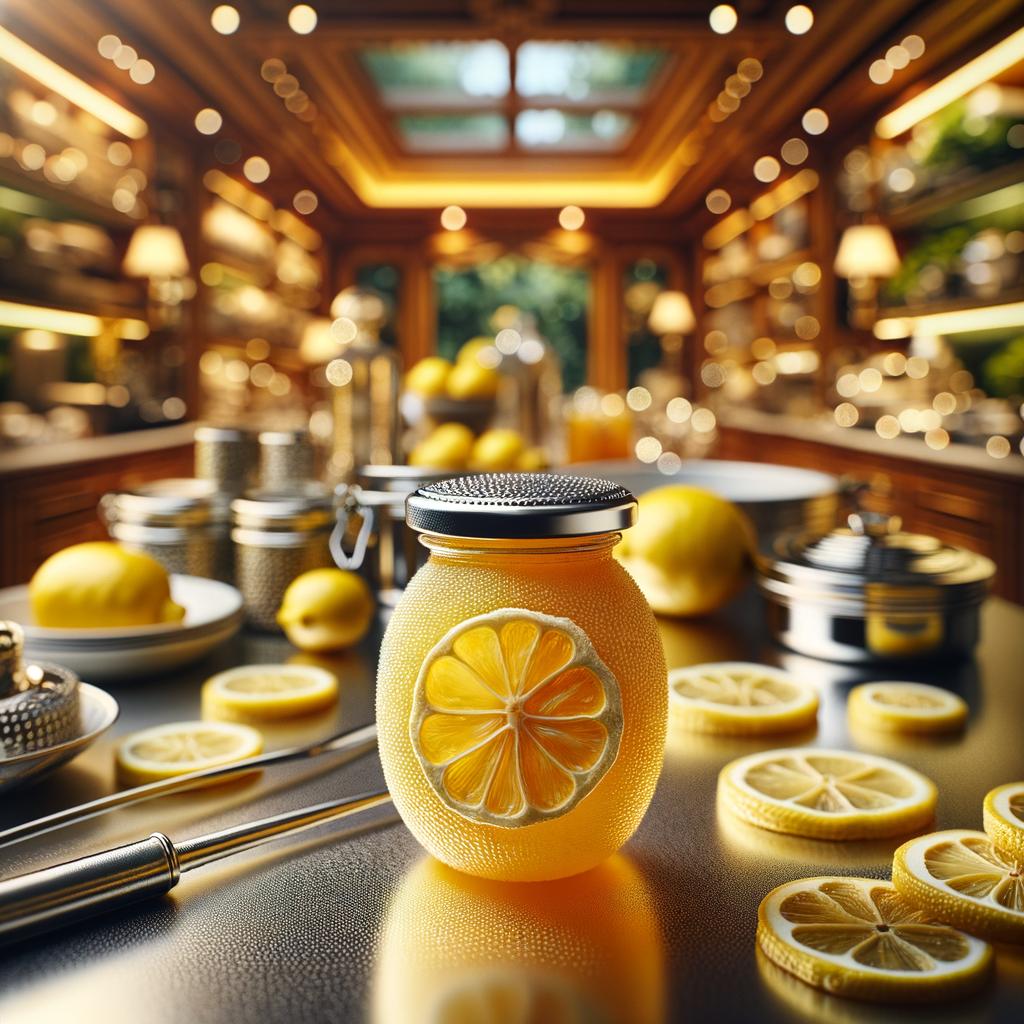Preserved Lemons

Description
Preserved lemons, the crown jewel of the citrus family, are whole lemons that have been pickled in salt and their own juice. They have a vibrant, glossy yellow appearance, and their texture is soft yet firm, with a pleasantly squishy feel. The rind, once tough, becomes tender and almost jam-like after the preserving process. The flavor profile of preserved lemons is uniquely intense yet mellow, with a tangy, salty, and slightly sweet taste that is beautifully balanced. What sets preserved lemons apart from their fresh counterparts is their deep, complex flavor and the unique preservation process that transforms them into a culinary delight.
Primary Uses
Preserved lemons are a cornerstone ingredient in many cuisines, particularly in North African and Middle Eastern dishes. They are often used in tagines, couscous, and salads to add a unique citrusy depth of flavor. The rind, in particular, is a treasured component, adding a distinct taste to sauces, marinades, and dressings. Beyond the culinary realm, preserved lemons also hold cultural significance in many societies, often used in traditional rituals and ceremonies.
History
The art of preserving lemons has a romantic and intriguing history that dates back to ancient times. Originating in the Middle East, this method was a practical solution to make lemons available throughout the year and for long sea voyages, preventing scurvy among sailors. Over time, the use of preserved lemons spread across the world, with each culture adding its unique twist to the preparation method. In Moroccan folklore, preserved lemons are considered a symbol of hospitality and friendship, often served to guests as a sign of warmth and welcome.
Nutritional Information
Preserved lemons are a nutritional powerhouse, packed with vitamin C, dietary fiber, and essential minerals like potassium and calcium. The preserving process enhances the bioavailability of these nutrients, making them easier for the body to absorb. They have a high probiotic content, promoting gut health, and their high vitamin C content aids in boosting immunity. However, due to their high salt content, they should be consumed in moderation, especially by those with high blood pressure. Compared to fresh lemons, preserved ones have a slightly lower vitamin C content but a significantly richer flavor and higher probiotic content.
Through their vibrant taste, intriguing history, and nutritional value, preserved lemons indeed tell a captivating food story, from their humble beginnings to their cherished status in global cuisine.

